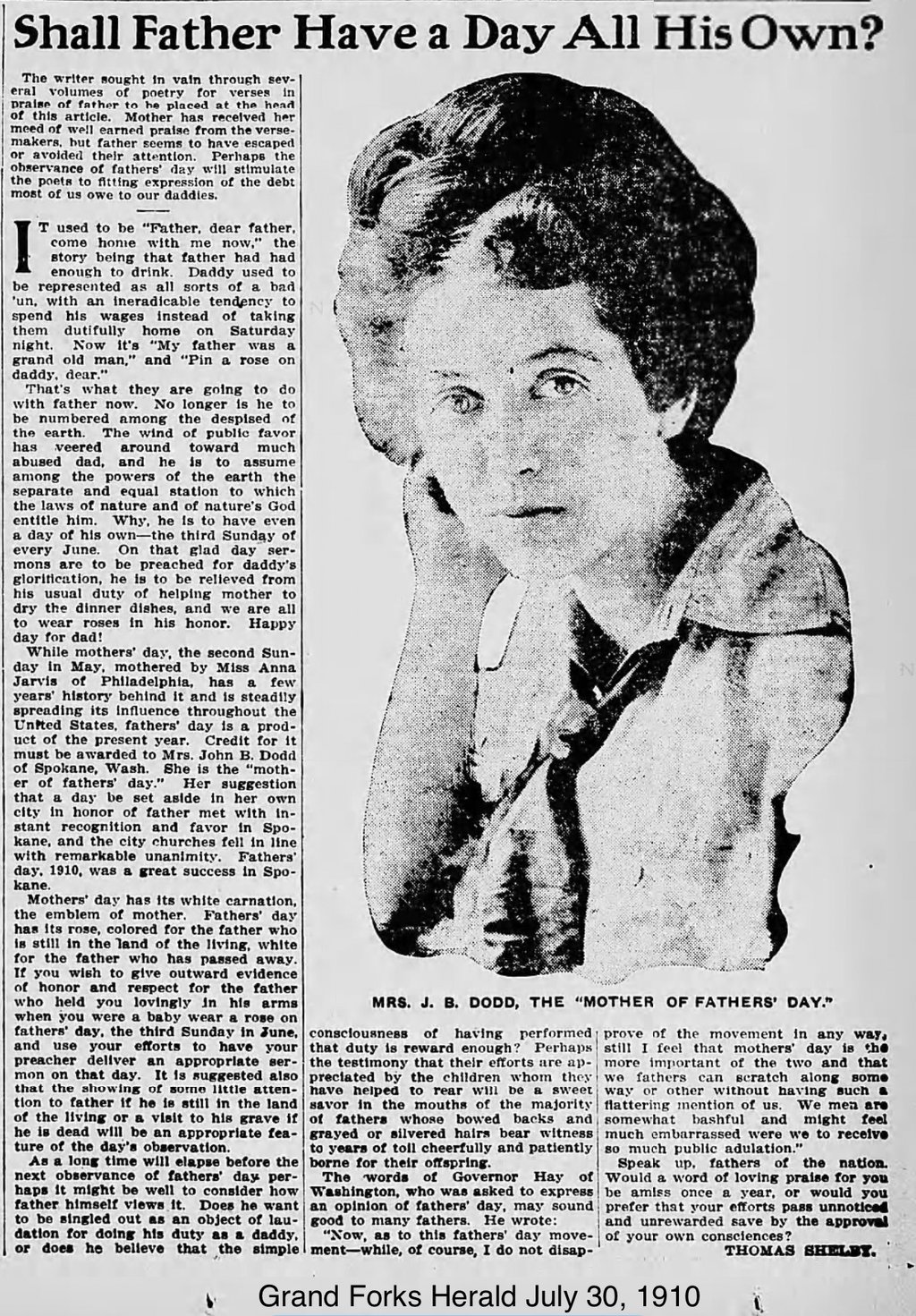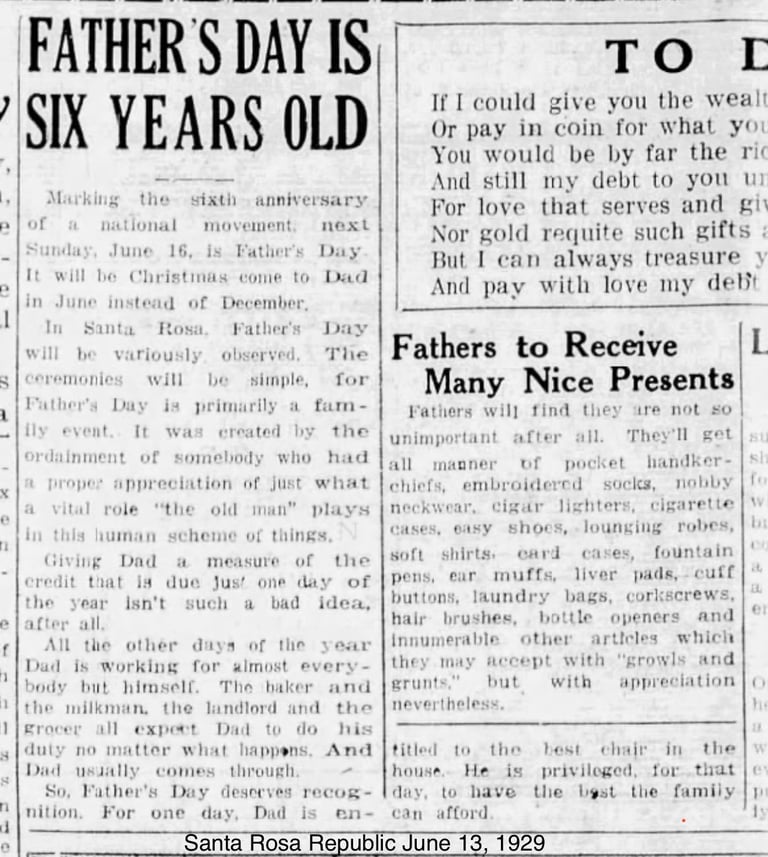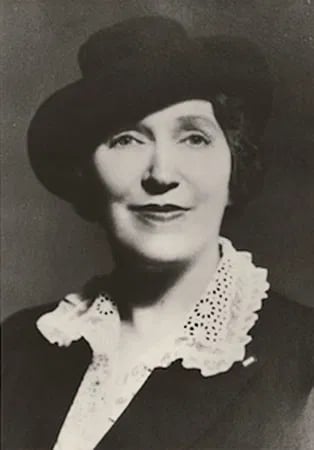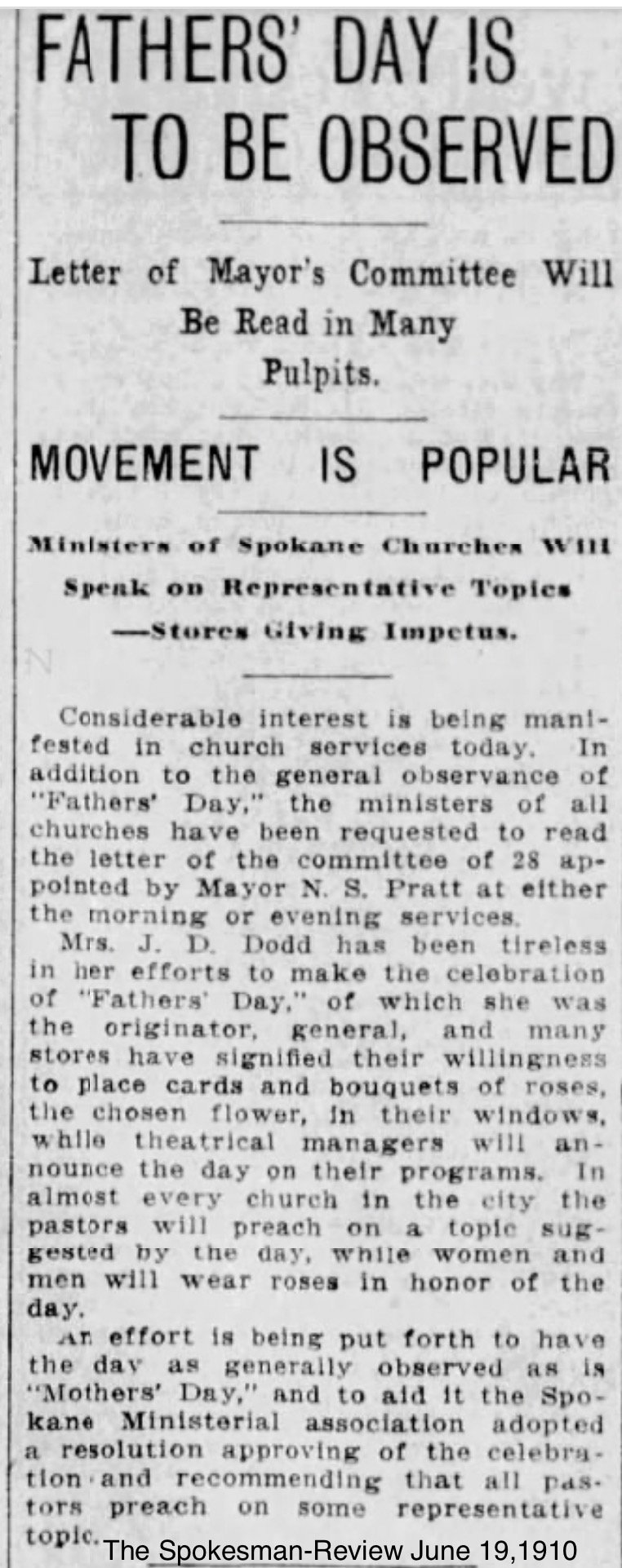Honoring heritage and reuniting families
Father's Day: Beyond the Barbecue and Ties
Father’s Day typically conjures images of backyard barbecues, quirky neckties, and heartfelt greeting cards. But have you ever wondered about the origins of this special occasion? Behind these traditions is a rich history filled with perseverance, evolving social attitudes, and deeply personal stories. From its beginnings in Spokane, Washington, to its recognition worldwide, Father's Day also brings emotional complexity, especially for individuals who have experienced loss, complicated family relationships, or who are adopted persons navigating their unique family dynamics. In this blog post, we'll explore the fascinating history of Father’s Day, discover its significance today, and reflect on how its meaning continues to evolve in our modern society.
Aimee Rose-Haynes
6/11/20254 min read


The History of Father's Day
Father’s Day, celebrated in many countries around the world, honors fatherhood, paternal bonds, and the essential role fathers play in society. While Mother's Day quickly gained prominence in the early 20th century, Father's Day took somewhat longer to gain widespread acceptance, evolving gradually through advocacy, persistence, and changing social attitudes.
Early Origins and Influences
Just as mothers have historically been celebrated, honoring fathers also has ancient roots. However, unlike Mother's Day, direct historical precedents for Father's Day celebrations are less clearly defined. In Catholic tradition, the feast of Saint Joseph, celebrated on March 19, has long honored fathers as Joseph was the foster father of Jesus, symbolizing paternal dedication and guidance.
The contemporary form of Father's Day finds its clearest origins in the early 20th-century United States, parallel to Mother’s Day but driven by a distinctly different cultural momentum.
American Beginnings of Father's Day
Father’s Day as recognized today largely originated with a woman named Sonora Smart Dodd of Spokane, Washington. In 1909, Dodd was inspired after hearing a Mother's Day sermon. She wished to honor her own father, William Jackson Smart, a Civil War veteran and widowed single father who raised six children alone following his wife's early death.
Dodd’s efforts culminated in Spokane’s first Father's Day celebration on June 19, 1910. Initially planned for June 5, her father's birthday, scheduling difficulties moved it to the third Sunday of June. The local observance quickly gained popularity, though broader national acceptance developed gradually.
The Struggle for Recognition
Despite early enthusiasm in some areas, national acceptance of Father's Day did not immediately follow. Many viewed the holiday skeptically, perceiving it as unnecessary or overly commercial. Unlike Mother's Day, which rapidly became popularized by emotional appeals and commercial interests, Father's Day faced greater resistance, partly due to traditional stereotypes viewing men as less sentimental.
Throughout the 1920s and 1930s, commercial interests began promoting the day, seeking to create opportunities for gift-giving, such as ties, tools, and tobacco products. Despite this, Father's Day remained informally celebrated for decades without official federal recognition.
Official Recognition
Gradually, social attitudes toward fatherhood evolved, particularly after World War II, when fatherhood took on new societal significance. Many families influenced by wartime separation came to deeply value paternal roles. By the mid-20th century, recognition of Father's Day gained momentum, increasingly accepted culturally and commercially.
President Lyndon B. Johnson issued the first presidential proclamation honoring fathers in 1966, designating the third Sunday in June as Father's Day. Finally, in 1972, President Richard Nixon officially signed Father's Day into law, making it a permanent national observance.
International Observance
Father’s Day is observed worldwide, though dates and customs vary. Many countries, including Canada, the United Kingdom, Mexico, and Japan, follow the American tradition, celebrating on the third Sunday in June. Other countries have distinct traditions and dates. For example, Australia and New Zealand celebrate Father's Day in September, while many Catholic nations celebrate it on Saint Joseph’s Day (March 19).
Celebrations globally commonly involve family gatherings, gift-giving, and special gestures acknowledging fathers and father figures for their support, guidance, and love.
Emotional Complexities of Father's Day
Father’s Day, much like Mother's Day, can evoke mixed emotions for those who have lost fathers, have complicated relationships, or who have absent fathers. For some, the day brings painful reminders of loss or grief. For others, unresolved relationships or difficult family dynamics can lead to discomfort or sadness.
Acknowledging these emotional complexities is important, as many individuals use Father's Day as an opportunity for reflection, healing, or reconciliation. Traditions such as storytelling, visiting graves, or engaging in meaningful acts of remembrance can offer comfort and closure.
Father's Day in the Adoption Community
Father's Day holds particular significance within the adoption community, involving complex emotions for adopted persons, adoptive fathers, and birth fathers. Adopted persons may reflect on the roles of both adoptive and biological fathers, sometimes grappling with identity, gratitude, and curiosity about their origins.
Birth fathers who have placed children for adoption may feel a heightened sense of loss or reflect on their challenging decisions. Their experiences are often overlooked, yet Father's Day can be a time of quiet reflection, acknowledgment, and emotional complexity.
Adoptive fathers experience distinct sentiments as well, often navigating their children’s mixed emotions and acknowledging the importance of biological family connections. Open conversations, understanding, and emotional support within adoptive families contribute to more inclusive celebrations of fatherhood.
A Day of Appreciation and Reflection
Today, Father’s Day remains an essential opportunity to honor and appreciate fathers and paternal figures, recognizing their significant contributions to family life and society. Although initially slow to gain universal acceptance, Father's Day has become a widely cherished occasion for expressing gratitude, fostering deeper emotional connections, and celebrating paternal bonds.
In honoring fathers, Father's Day also thoughtfully acknowledges diverse family structures and emotional complexities, inviting meaningful reflection on what fatherhood means individually and collectively.
-Aimee Rose-Haynes








